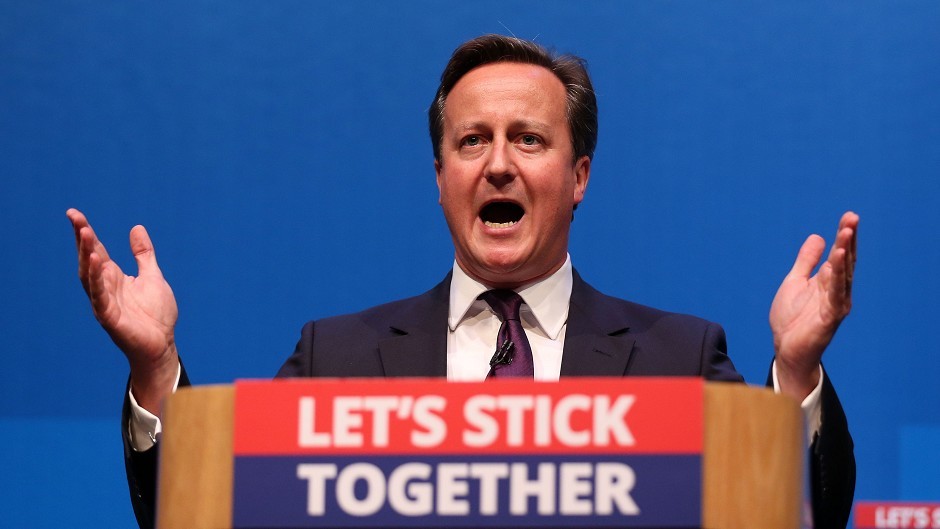Calum Ross, the Press and Journal’s UK political correspondent, looks at what the referendum result means for Westminster.
Listen carefully and you can hear the entire Westminster Establishment breathing a collective sigh of relief.
The traditional order in Britain had not faced the existential threat that Scotland has posed during the last few weeks and months since World War II.
There will be celebrations, no doubt, in Downing Street and the boardrooms of some of the country’s biggest banks and companies, not to mention in Madrid, Brussels and Washington.
Prime Minister David Cameron lives to fight another day, escaping the humiliation of going down in history as the man who lost the Union, with his premiership now intact until May’s election at least.
Labour leader Ed Miliband can also go to Manchester on Sunday for his party’s autumn conference safe in the knowledge that his bid to succeed Mr Cameron remains live.
But it will not be business as usual for either men.
The status quo was not on the ballot paper, and the political landscape in the UK changed forever the second that opinion polls showed a majority of Scots might vote to break away.
Mr Cameron survives, but his reputation has been damaged.
Questions over his judgement will be asked despite the result, with many people believing that tactical errors were made which led to the nervous end to the campaign.
These include his insistence that “devo max” be kept off the ballot, concessions to the SNP over the referendum arrangements, and the failure to present a positive vision of the UK’s future.
Perhaps Mr Cameron’s biggest issue is his last minute promise of more powers for Holyrood and protection of the Barnett formula.
The alternative offer on devolution – which he is expected to expand on in a speech to the nation this morning – had the feel of being cobbled together at the 11th hour, and led by the prime minister’s predecessor, Gordon Brown.
Tory MPs are already in open revolt over the commitment to protect Barnett, which is overdue for reform and is hugely controversial in Wales and some English regions.
Combined with growing calls for further devolution in England, and for Scottish MPs to be banned from voting on English-only, it seems likely that the constitutional debate will now move south.
It is difficult to predict where that discussion will lead.
Many of Mr Cameron’s headaches will be shared by Mr Miliband as well.
The referendum will go down as one of the biggest battles in Labour’s history, and one in which it emerged as victors. But it has come at a cost.
The party’s decline in its traditional working class heartlands has been laid bare as thousands of supporters in places such as Glasgow and Dundee switched to Yes.
There must be some doubt over whether they all now go back and vote Labour in May.
The SNP will no doubt be aiming to capitalise and make gains at Westminster, if they can quickly recover from the disappointment of today’s result.
That said, one of the great stories of the referendum, and for Labour, has been the redemption of Mr Brown, who made a decisive intervention in the final weeks of the campaign.
Vilified and ridiculed by many at Westminster and in Fleet Street during his time in Downing Street, the same people will today be forced to hold him up as one of the saviours of the Union.
Mr Brown’s place in history is now assured, and who knows, maybe there is still time for another chapter in his story, perhaps at Holyrood and as first minister.
Alistair Darling, his one-time friend and more recent enemy, also deserves some credit for pulling the No campaign over the line, despite much criticism of its tactics.
Scottish Cabinet members Danny Alexander and Alistair Carmichael – who would probably have had to resign if there was a Yes vote – have also played their part.
While the rejection of independence in this historic ballot will undoubtedly have stalled the campaign for Scotland to go it alone, it has not been killed off.
A larger margin of victory was needed for the No campaign to achieve that goal.
Scotland has been closer to independence during the last few weeks than at any time in the last three centuries.
Many have been converted to the cause, and many others voted No reluctantly.
A majority of Scots may have said that they do not feel ready for independence, but they have also made it clear that they do want change.
Westminster will have little choice but to heed that message and respond swiftly – effectively delivering “home rule” north of the border and a form of federalism across the UK, as Mr Brown promised.
Otherwise the message from Scotland could well be different next time.
